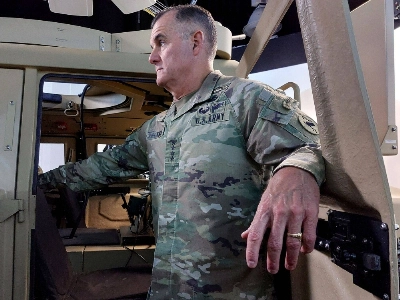North Korea conducted its first drills simulating a nuclear counterattack under its “nuclear trigger” management system in an exercise overseen by leader Kim Jong Un, state-run media said Tuesday, as Washington and Seoul were set to begin talks on cost-sharing for hosting U.S. troops in South Korea.
The drill, which involved the North’s “super-large multiple rocket units,” was held Monday and was aimed at “substantially strengthening the prompt counterattack capacity of the state nuclear force” under the country’s haekbangashoe — or “nuclear trigger” — combined management system, the official Korean Central News Agency reported.
KCNA said the main purpose of the exercise was “to demonstrate the reliability, superiority, might and diverse means of the DPRK's nuclear force and to strengthen the nuclear force both in quality and quantity” and was “a clear warning signal” to its enemies amid joint U.S.-South Korean military drills featuring the allies’ air forces.



















With your current subscription plan you can comment on stories. However, before writing your first comment, please create a display name in the Profile section of your subscriber account page.